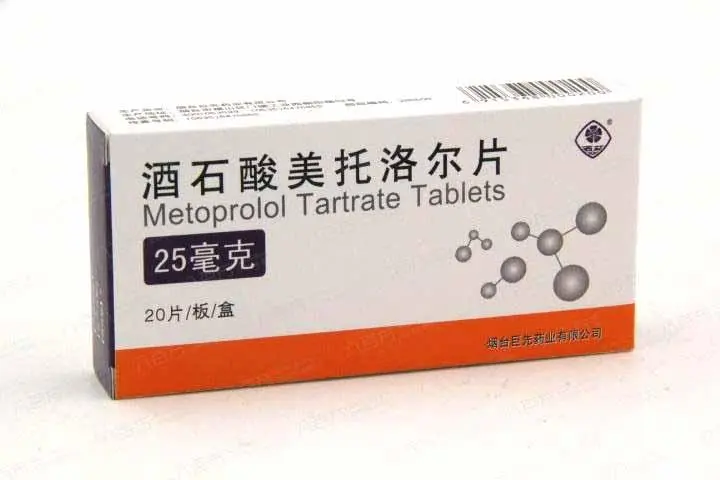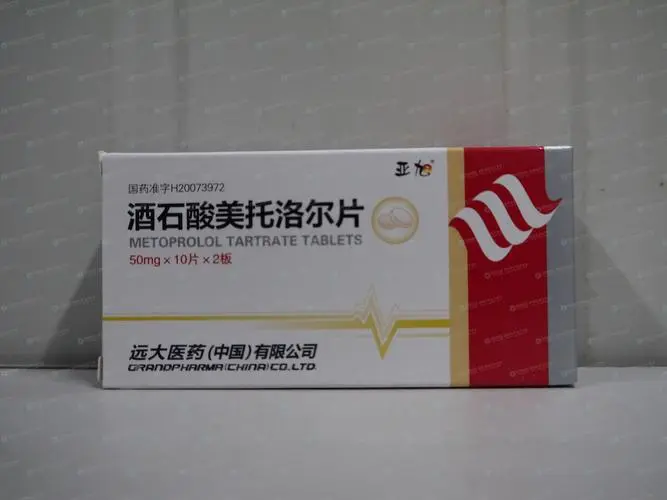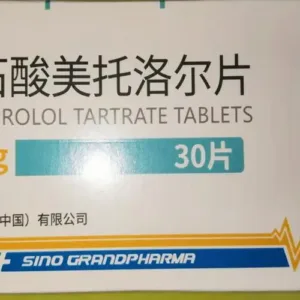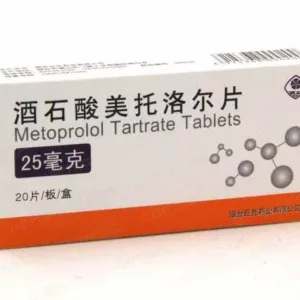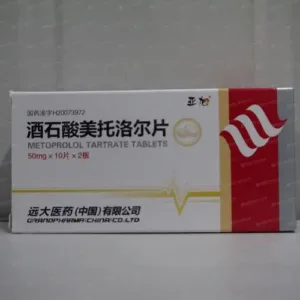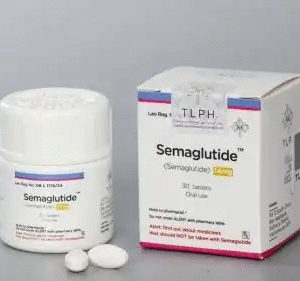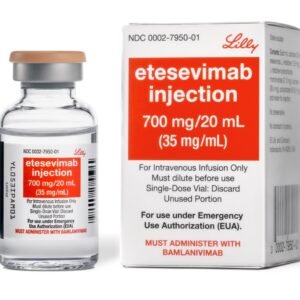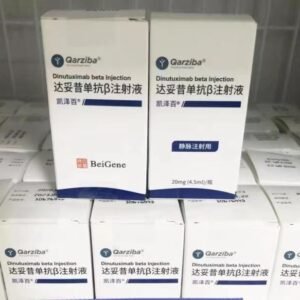metoprolol
Effects and efficacy:
It is mainly used to treat hypertension, angina pectoris, myocardial infarction, hypertrophic cardiomyopathy, aortic dissection, arrhythmia, hyperthyroidism, cardiac neurosis, etc. It can relieve symptoms such as palpitations and tachycardia. It can also be used to treat heart failure, but it should be used strictly under the guidance of an experienced physician.
Usage and dosage:
1. Oral metoprolol tartrate tablets: The dosage should be individualized to avoid bradycardia. Regular-release tablets should be taken on an empty stomach. Taking the tablets with meals can increase the bioavailability of metoprolol by 40%. Metoprolol succinate sustained-release tablets: Oral, once a day, preferably in the morning, can be broken open, but not chewed or crushed, and should be taken with at least half a cup of liquid. Taking food at the same time does not affect its bioavailability. Metoprolol tartrate tablets: 100-200 mg at a time, taken in 1-2 times. Please follow the doctor’s advice for details. Metoprolol succinate sustained-release tablets: 47.5-95 mg once a day. Patients who do not respond to 95 mg can use other antihypertensive drugs, preferably diuretics and dihydropyridine calcium antagonists, or increase the dose. Metoprolol tartrate tablets: 25-50 mg once, 2-3 times a day, or 100 mg once, twice a day. Metoprolol succinate sustained-release tablets: 95-190 mg, once a day. Nitrates can be used in combination or the dose can be increased if necessary. Metoprolol tartrate tablets: 25-50 mg once, 2-3 times a day, or 100 mg once, twice a day. Metoprolol tartrate tablets: This drug should be used on the basis of anti-heart failure treatment such as digitalis and (or) diuretics. Initially, 6.25 mg once, 2-3 times a day, and then increase by 6.25-12.5 mg every few days to once a week, 2-3 times a day, depending on the clinical situation. The maximum dose can be up to 50-100 mg once, twice a day. Metoprolol succinate sustained-release tablets: combined with angiotensin-converting enzyme inhibitors, diuretics, and perhaps digitalis drugs in symptomatic stable heart failure. ① Dosage for patients with stable heart failure of heart function class II: Within two weeks of the start of treatment, the recommended starting dose is 23.75 mg, once a day. After two weeks, the dose can be increased to 47.5 mg, once a day. Thereafter, the dose can be doubled every two weeks. The target dose for long-term treatment is 190 mg, once a day. ② Dosage for patients with stable heart failure of heart function class III-IV: The recommended starting dose is 11.875 mg (half a 23.75 mg tablet), once a day. The dose should be individualized, and the patient should be closely observed during the dose increase process, because some patients may experience worsening heart failure symptoms. After 1-2 weeks, the dose can be increased to 23.75 mg once a day. After another 2 weeks, the dose can be increased to 47.5 mg once a day. For those who can tolerate higher doses, the dose can be doubled every 2 weeks, up to a maximum of 190 mg once a day. Metoprolol tartrate tablets: Used early, i.e. within the first few hours, because immediate use can reduce the size of the infarction and reduce short-term (15-day) mortality in patients who have failed to undergo thrombolysis (this effect occurs 24 hours after administration). In patients who have already undergone thrombolysis, the reinfarction rate and re-ischemia rate can be reduced, and if the drug is used within 2 hours, the mortality rate can also be reduced. General usage: Metoprolol can be injected intravenously once at 2.5-5 mg (within 2 minutes), once every 5 minutes, for a total of 3 times with a total dose of 10-15 mg. After 15 minutes, take 25-50 mg orally every 6-12 hours for 24-48 hours, then take 50-100 mg orally twice a day. Metoprolol can be used intravenously in patients with acute myocardial infarction with atrial fibrillation if there is no contraindication, and the method is the same as above. It should be used for a long time after myocardial infarction if there is no contraindication, because it has been shown to reduce cardiac mortality, including sudden death. Metoprolol tartrate tablets are generally 50-100 mg once, twice a day. Unstable angina: Early use is also advocated. The usage and dosage of metoprolol tartrate tablets can refer to acute myocardial infarction. The maximum daily dose should not exceed 300mg-400mg. Renal function has no significant effect on clearance, so patients with renal impairment do not need to adjust the dose. Usually, the dose of metoprolol used in patients with cirrhosis is the same as that in patients with normal liver function. Dose reduction should only be considered when liver function is very severely impaired (such as patients undergoing bypass surgery). 2. Intravenous administration of supraventricular tachyarrhythmias: Initially, administer intravenously at a rate of 1-2 mg/min, with a dose of up to 5 mg (5 ml); if necessary, repeat the injection at 5-minute intervals, with a total dose of 10-15 mg (4-6 hours after intravenous injection, the arrhythmia has been controlled, and oral preparations are used to maintain it, 2-3 times a day, with each dose not exceeding 50 mg). Prevention and treatment of myocardial ischemia, tachyarrhythmias and chest pain in patients with confirmed or suspected acute myocardial infarction: immediately administer 5 mg (5 ml) intravenously. This dose can be repeated after 2 minutes, up to a maximum dose of 15 mg (15 ml). Patients with the following conditions cannot be given intravenously immediately: heart rate < 70 beats/min, systolic blood pressure < 110 mmHg, or first-degree atrioventricular block. For further treatment options (oral medication), please refer to the instructions for Betaloc tablets. Drug Combination Metoprolol tartrate injection 1mg/ml, the maximum dose can be up to 40mg, can be added to 1000ml of the following intravenous injections for drip: 0.9% sodium chloride, 10% glucose, 5% glucose, Ringer’s injection, Ringer’s-dextrose solution and acetic Ringer’s solution. The injection should be used within 12 hours after dilution. Metoprolol tartrate injection should not be added to dextran 70 plasma substitute for drip.
Drug Contraindications:
Allergic to this product is prohibited for athletes to use with caution. Use with caution during pregnancy. Use with caution in case of liver function damage
Related dosage forms:
Tablets, sustained-release tablets, injection
Share:
Products
Our offers
Health Classification
Let us work together to protect precious health


